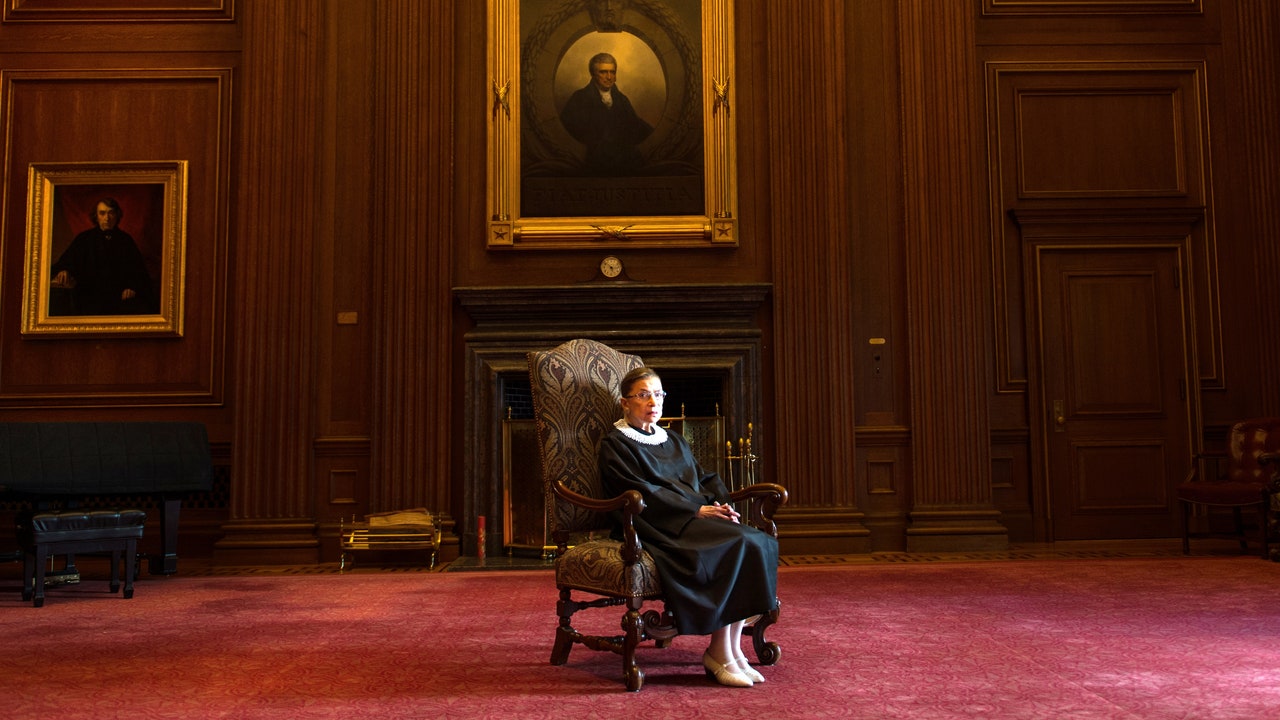It didn’t take Mitch McConnell long to lay down the gauntlet. Barely two hours after the news was made public that Ruth Bader Ginsburg had died on Friday at the age of 87, the Senate Majority Leader issued a statement announcing he was immediately moving ahead with plans to seat her successor.
“Americans reelected our majority in 2016 and expanded it in 2018 because we pledged to work with President Trump and support his agenda, particularly his outstanding appointments to the federal judiciary,” McConnell said, adding: “President Trump’s nominee will receive a vote on the floor of the United States Senate.”
But unlike his success in blocking Barack Obama from filling the Supreme Court after the death of Antonin Scalia in 2016, when there was almost a full year left in Obama’s term, McConnell might find a bit more resistance this time around, even from his own party members.
The fact that there are only 45 days until an election that might yield a new president may give even his most ardent allies pause—especially those who are themselves engaged in a tough fight for re-election.
Even before the death of Ginsburg on Friday, but after news that the justice’s cancer had returned, two Republican senators—Lisa Murkowski of Alaska and Susan Collins of Maine—had said they would oppose trying to name a successor before the presidential election had been decided.
“I would not vote to confirm a Supreme Court nominee,” Murkowski said in an interview with Alaska Public Media earlier on Friday. “We are 50-some days away from an election.”
Collins told the The New York Times that she would not support voting to confirm a new justice if a vacancy came up in October, saying, “I think that’s too close, I really do.” Collins, whose vote to confirm Brett Kavanaugh’s 2018 nomination to the Supreme Court was sharply criticized by some of her own supporters, is considered one of the most vulnerable Republican incumbents on the ballot this fall, with her opponent, Sarah Gideon, leading in the most recent polls.
Another senator in a surprisingly tough race, Lindsey Graham of South Carolina, has also said he would not support rushing through a nominee in the final days of the 2020 election. In 2018, Graham said, “If an opening comes in the last year of President Trump’s term, and the primary process has started, we’ll wait to the next election. And I’ve got a pretty good chance of being the Judiciary [chairman]. Hold the tape.” (Graham is indeed now chairman of the Judiciary Committee, which would conduct hearings when there is a nominee, and one can be certain that his Democrat opponent, Jaime Harrison, whom the polls now show tied with Graham, will play that tape—over and over and over again—if Graham reverses course in the coming days.)
